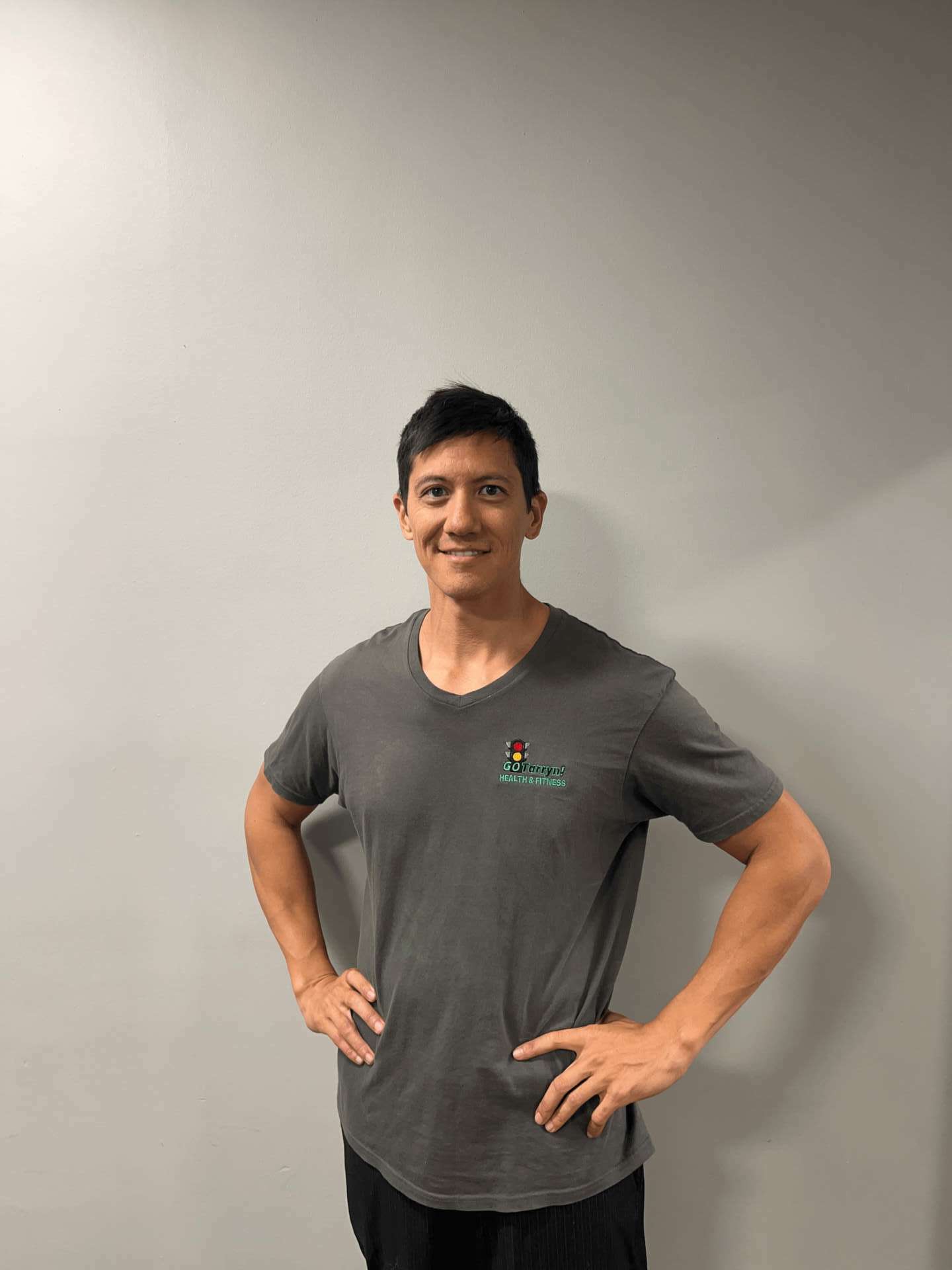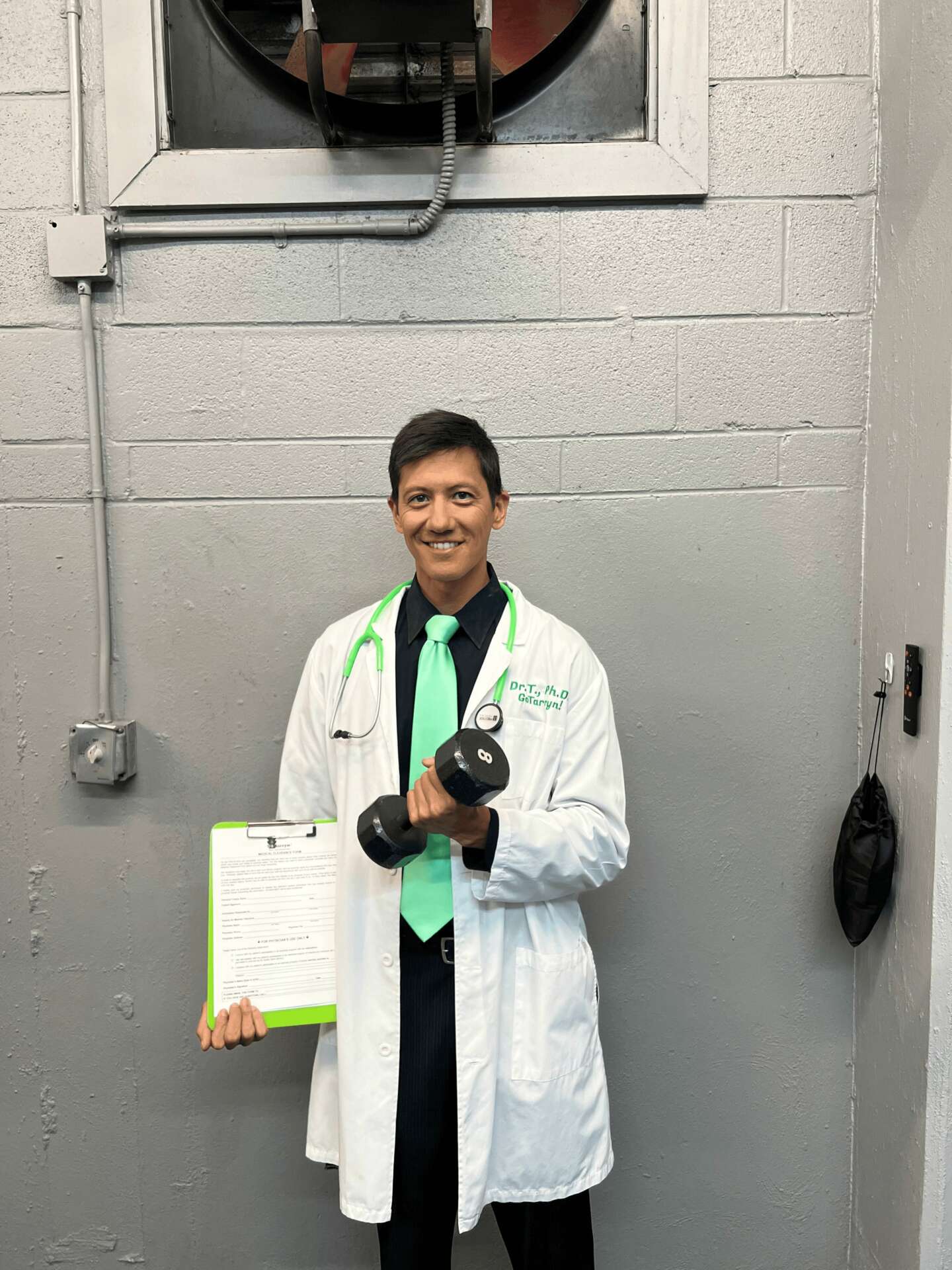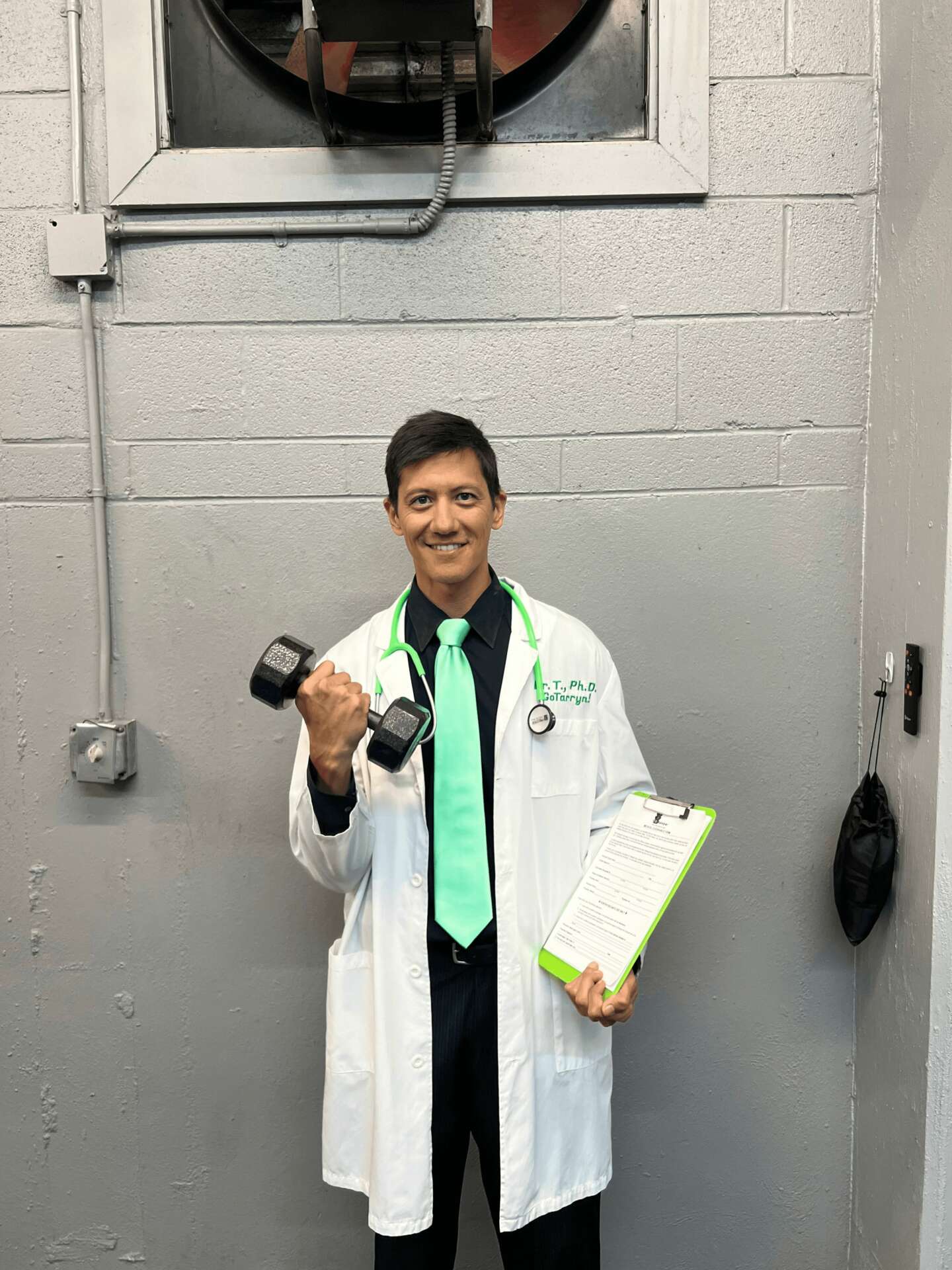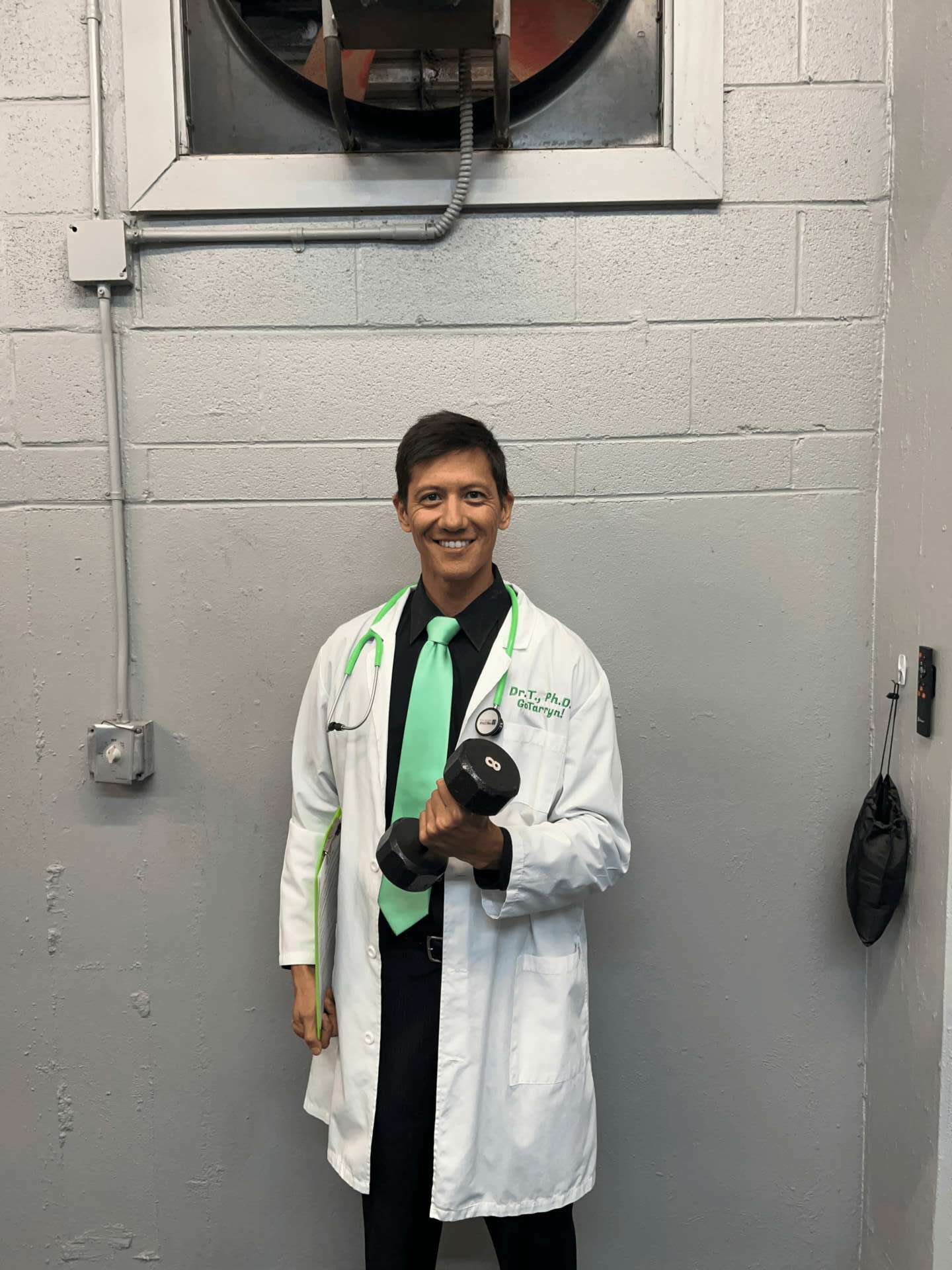Alright – so today we’ve got the honor of introducing you to Tarryn Hoff. We think you’ll enjoy our conversation, we’ve shared it below.
Tarryn, thanks for joining us, excited to have you contributing your stories and insights. We’re complete cheeseballs and so we love asking folks to share the most heartwarming moment from their career – do you have a touching moment you can share with us?
One crisp autumn morning, I was on my usual jog through the park when I noticed a small, scruffy dog huddled under a bench. Its fur was matted, and it shivered in the cool breeze. Instantly, my heart went out to the little creature. I slowed my pace and cautiously approached, speaking in soothing tones.
“Hey there, buddy,” I said softly. The dog’s big, round eyes looked up at me, filled with a mix of hope and fear. I extended my hand, allowing the dog to sniff before gently petting its head. The dog leaned into my touch, and I felt a connection form.
I couldn’t leave the dog there, so I decided to take it home. I wrapped it in my jacket to keep it warm and carried it back to my apartment. Once there, I gave the dog a bath, washing away months of grime and revealing its beautiful, golden fur. I fed it a hearty meal and watched as it devoured the food, its tail wagging furiously.
After some much-needed rest, I took the dog to the vet for a check-up. The vet confirmed that the dog was healthy but needed some vaccinations and a proper diet. I decided to keep the dog until I could find it a forever home, naming it “Lucky” because I felt both of us were lucky to have found each other.
Days turned into weeks, and the bond between Lucky and me grew stronger. We shared countless moments of joy, from playful runs in the park to quiet evenings cuddled on the couch. Lucky’s transformation was remarkable; the once-scared stray had become a lively, affectionate companion.
One day, as I watched Lucky play in the park, I realized something profound. This little dog, who had been abandoned and alone, had brought so much happiness into my life. I knew then that I couldn’t let Lucky go. Lucky had found his forever home with me, and I had found a loyal friend who filled my days with love and laughter.


Tarryn, before we move on to more of these sorts of questions, can you take some time to bring our readers up to speed on you and what you do?
I’m an exercise psychologist, and my passion is helping people transform into the best versions of themselves, both physically and mentally. Every day, I work with clients from all walks of life, guiding them on their fitness journeys and helping them discover their true potential.
When someone comes to me, the first thing I do is get to know them. I want to understand their goals, their challenges, and their unique motivations. It’s important to me that I see the whole person, not just their physical state. By understanding their mental and emotional needs, I can tailor a fitness plan that fits perfectly into their lives.
My approach is holistic. I believe that physical fitness is deeply connected to mental well-being. Exercise is not just about losing weight or building muscle; it’s about gaining confidence, reducing stress, and finding joy in movement. I teach my clients how to listen to their bodies, set realistic goals, and celebrate every achievement, no matter how small.
I use a variety of techniques to keep my clients motivated and engaged. Whether it’s through personalized workout plans, mindfulness practices, or nutritional guidance, I ensure that every aspect of their health is addressed. I also emphasize the importance of self-compassion and patience. Transformation takes time, and it’s essential to be kind to oneself throughout the process.
One of the most rewarding parts of my job is witnessing the incredible transformations my clients undergo. I’ve seen people overcome significant obstacles, break through mental barriers, and achieve things they never thought possible. It’s inspiring to watch someone go from doubting their abilities to embracing their strength and resilience.
Being an exercise psychologist is more than just a job to me; it’s a calling. I wake up every day excited to make a difference in people’s lives. There’s nothing more fulfilling than knowing I’ve helped someone become healthier, happier, and more confident. Seeing my clients succeed and thrive motivates me to continue evolving and improving my own practice, ensuring I can always offer the best support and guidance possible.


Do you have any insights you can share related to maintaining high team morale?
As a leader and manager, I believe that building high morale within a team is crucial for success. Here are some principles I recommend to others who want to become strong leaders and foster a positive, motivated team environment:
1. Lead by Example: Demonstrate the behaviors and attitudes you want to see in your team. Show commitment, integrity, and a strong work ethic. When your team sees you putting in the effort and staying positive, they’re more likely to follow suit.
2. Communicate Clearly and Often: Open and honest communication is vital. Keep your team informed about goals, expectations, and any changes that might affect them. Encourage feedback and be willing to listen. When team members feel heard and understood, their morale and trust in leadership increase.
3. Empower Your Team: Give your team members the autonomy to make decisions and take ownership of their work. Trust them to deliver and provide support when needed. Empowered employees feel more valued and are more motivated to contribute their best efforts.
4. Recognize and Reward Achievements: Acknowledge the hard work and successes of your team. Regularly celebrate both small and big wins. Personalized recognition shows that you notice and appreciate their efforts, boosting their morale and motivation.
5. Provide Opportunities for Growth: Invest in your team’s development. Offer training, mentorship, and opportunities to learn new skills. When team members see a clear path for growth, they are more engaged and committed to their work.
6. Foster a Positive Work Environment: Create a supportive and inclusive atmosphere where everyone feels safe to express their ideas and opinions. Encourage teamwork and collaboration. A positive work environment enhances morale and helps team members build strong, trusting relationships.
7. Be Transparent and Honest: Transparency builds trust. Share both the good and the challenging news with your team. When you’re honest about difficulties and involve your team in problem-solving, you create a culture of trust and collaboration.
8. Show Empathy and Support: Understand that your team members have lives outside of work and may face personal challenges. Show empathy and offer support when needed. A compassionate leader who cares about their team’s well-being fosters loyalty and high morale.
9. Maintain a Balance Between Work and Fun: Encourage a healthy work-life balance and create opportunities for team bonding. Whether it’s through team-building activities, casual get-togethers, or simply having fun during work hours, a balanced approach keeps the team energized and connected.
10. Be Adaptable and Open-Minded: Be willing to adapt your leadership style to meet the needs of your team. Stay open to new ideas and approaches. Flexibility and openness show that you value input and are committed to continuous improvement.
By following these principles, I’ve found that I can lead my team with confidence and build high morale. Being a strong leader means constantly learning and growing, and by prioritizing your team’s well-being and success, you create a thriving, motivated work environment.


Other than training/knowledge, what do you think is most helpful for succeeding in your field?
As a personal trainer, I’ve learned that while training and technical knowledge are essential, there are other crucial aspects that contribute significantly to success. Here’s what I recommend to others who are looking to excel in this field:
1. Build Strong Relationships: Establishing a solid rapport with clients is vital. Take the time to understand their goals, challenges, and motivations. Show genuine interest in their well-being, and be approachable and supportive. When clients feel valued and understood, they are more likely to stay committed and trust your guidance.
2. Develop Excellent Communication Skills: Clear and effective communication is key. Explain exercises, techniques, and routines in a way that’s easy to understand. Listen actively to your clients’ feedback and concerns. Being able to communicate well ensures that your clients feel informed and confident in their workouts.
3. Be a Motivator and Encourager: Motivation is a huge part of personal training. Be enthusiastic and positive, and celebrate your clients’ progress, no matter how small. Encourage them when they face challenges and remind them of their achievements and potential. Your enthusiasm and belief in their abilities can be incredibly empowering.
4. Stay Adaptable and Open-Minded: Each client is unique, and what works for one person might not work for another. Be flexible in your approach and willing to adapt your training methods to meet individual needs. Continuously seek feedback and be open to trying new techniques or adjusting plans as necessary.
5. Lead by Example: Practice what you preach. Maintain a healthy lifestyle and stay fit. Your clients look up to you, and seeing you live the principles you teach can be a powerful motivator for them. Leading by example also builds credibility and trust.
6. Keep Learning and Growing: The fitness industry is constantly evolving. Stay updated with the latest research, trends, and techniques. Attend workshops, seminars, and courses regularly. Continuous learning not only enhances your skills but also shows your clients that you are committed to providing the best possible training.
7. Develop Business Acumen: Being a successful personal trainer isn’t just about fitness knowledge; it’s also about running a business. Learn about marketing, client retention, and financial management. Build a strong online presence and network with other professionals. Good business skills can help you attract and retain clients, and grow your personal training business.
8. Cultivate Patience and Empathy: Understand that progress can be slow and that clients may have setbacks. Be patient and empathetic, and offer support during tough times. Showing compassion and understanding fosters a positive and trusting relationship.
9. Focus on Holistic Wellness: Encourage clients to look beyond physical fitness. Discuss the importance of nutrition, mental health, and overall wellness. A holistic approach helps clients achieve a balanced, healthy lifestyle and demonstrates your comprehensive understanding of health and fitness.
10. Seek and Value Feedback: Regularly ask your clients for feedback on your training methods and their progress. Use this information to improve your services and address any concerns. Valuing feedback shows that you care about their experience and are dedicated to their success.
By incorporating these elements into your practice, you can become a more effective and successful personal trainer. It’s about more than just training; it’s about building relationships, staying adaptable, and continuously growing both personally and professionally.
Contact Info:
- Website: https://www.drtphd.com/
- Instagram: https://www.instagram.com/gotarryn/
- Facebook: https://www.facebook.com/DoctorTPhD
- Linkedin: https://www.linkedin.com/in/drtphd
- Twitter: https://www.twitter.com/gotarryn




